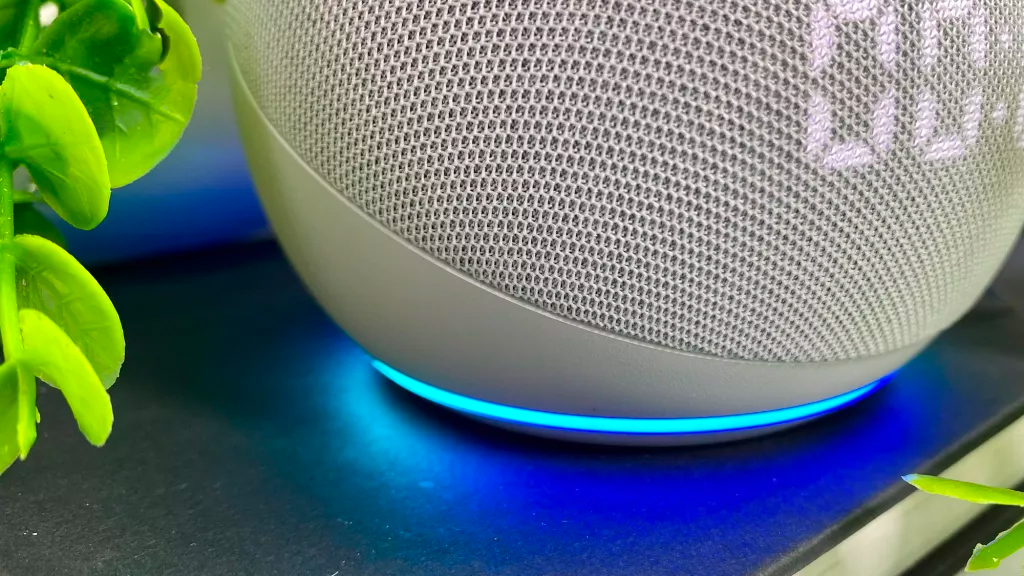Alexa could impersonate voices of dead loved ones — but should it?
Amazon demonstrated how Alexa can mimic someone's voice, even if they're dead

One of the methods Amazon demonstrates to improve Alexa involves making the voice assistant seem more human. While Alexa has certainly become a better conversationalist, learning when to whisper and offering a follow-up mode, it still has a distinct and slightly-robotic tone. Yes, even for Alexa celebrity voices.
But soon Alexa could be able to speak through a filter of a more human-like voice, specifically the voice of your departed loved ones. Rohit Prasad, senior vice president and head scientist of Alexa AI, demonstrated this experimental feature during Amazon's annual MARS conference this week (via The Verge,) claiming its AI can mimic a person's voice using a single minute of recorded audio.
While it could've demoed the feature using anyone alive and perhaps even a person with a recognizable voice, Amazon instead opted to have Alexa narrate a bedtime story to a child using the voice of his deceased grandmother.
Though this choice is questionable, it seems to illustrate the advances in humanizing the Alexa experience. I'm not saying I support disillusionment, but connecting a user to someone they've lost could deliver an otherwise priceless experience. As long as it's within reason, of course. Even to hear the voice of someone in a different time zone, or your favorite show character, could make Alexa communications feel more authentic.
Sure, copying someone's voice with a mere minute of learning or intake marks a creepy progression for AI. But is it a surprising progression? Not really. Deepfakes, which were coined back in 2017, are responsible for conjuring up convincing-yet-fabricated visuals.
And maybe you saw the Metaphysic founders who auditioned for America's Got Talent with an unbelievably persuasive Simon Cowell AI. I felt equally amused and unsettled by the act, not because it it felt like a magic trick but because I know the current state of AI technology more advanced than many give it credit for.
In other words, Alexa gaining mimicking abilities was inevitable. At the MARS conference, the feature was not promised for the best Alexa speakers or the Alexa assistant consumers currently use on their smartphones, headphones or other connected Alexa devices. If this capability does eventually come to Alexa, it probably won't be for some time.
Sign up to get the BEST of Tom's Guide direct to your inbox.
Get instant access to breaking news, the hottest reviews, great deals and helpful tips.
I'm curious to see if, how many and in what ways users leverage such abilities. I personally don't need to hear the voice of someone who's passed, but I wouldn't diminish the value that might hold to another person.
If you're looking to change up how your voice assistant communicates, here's how to get Alexa celebrity voices, how to turn on Alexa's male voice and how to make Alexa speak faster or slower.
Kate Kozuch is the managing editor of social and video at Tom’s Guide. She writes about smartwatches, TVs, audio devices, and some cooking appliances, too. Kate appears on Fox News to talk tech trends and runs the Tom's Guide TikTok account, which you should be following if you don't already. When she’s not filming tech videos, you can find her taking up a new sport, mastering the NYT Crossword or channeling her inner celebrity chef.

